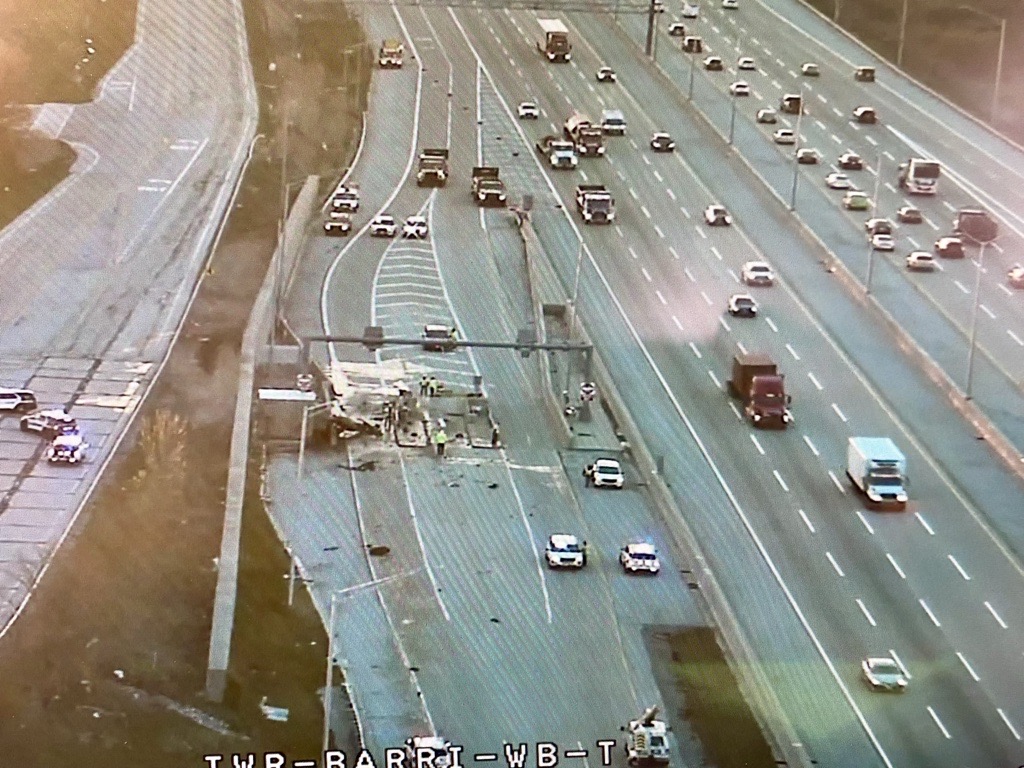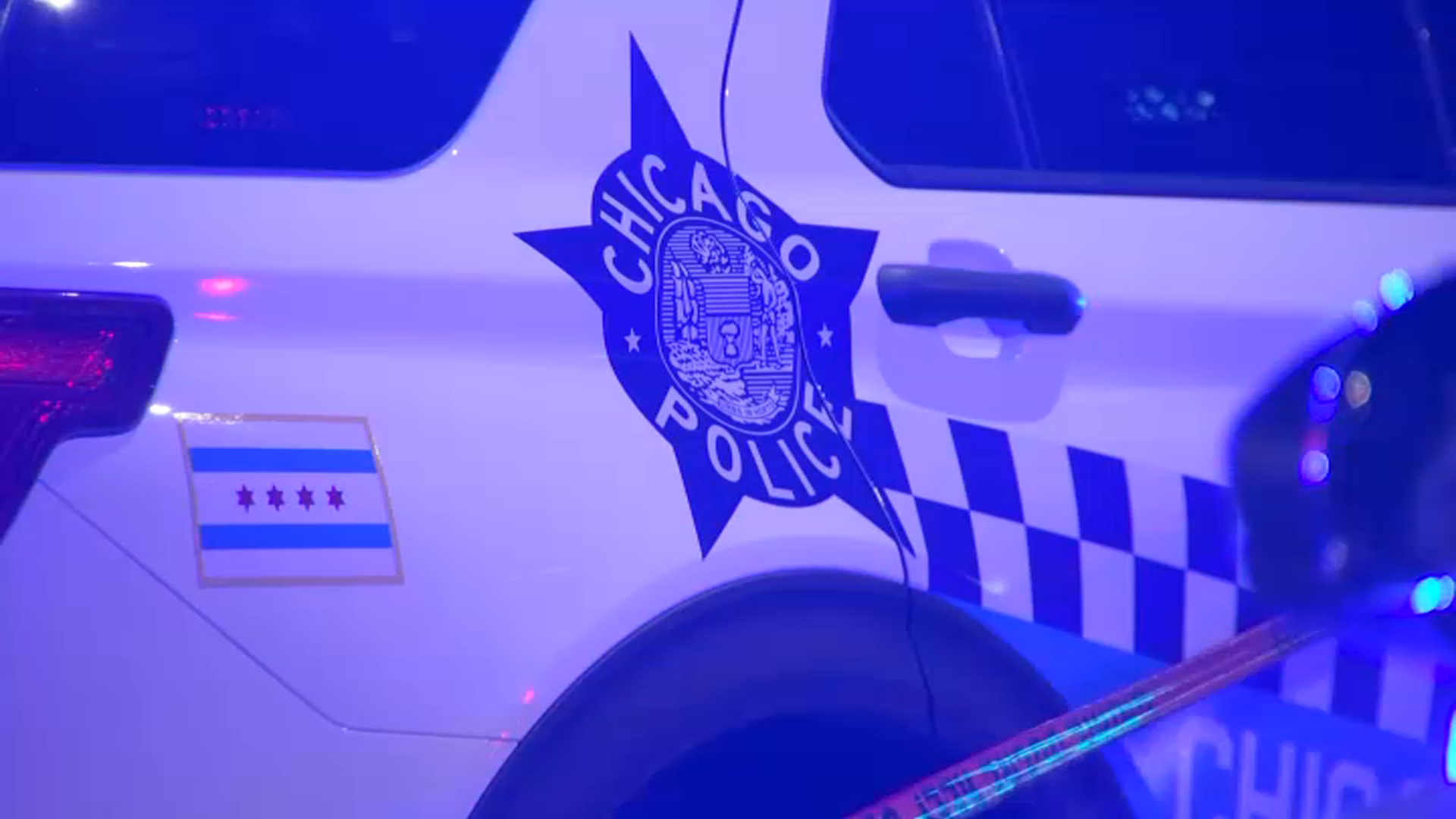What’s in a company name? Apparently, a pricey ticket if you fail to display it on the side of your work vehicle. And one suburban Chicago village is ticketing more drivers than the country’s second largest police department and the Illinois State Police combined.
A unique Illinois traffic law (625 ILCS 5/12-713) requires business names to be posted on “second division” commercial vehicles used by construction contractors or subcontractors. The vehicles can include vans and trucks hauling ladders, tools and construction materials.
The law appears to be rarely enforced in the Chicago area except in the Village of Bull Valley (pop. 1,111), a residential community in McHenry County often used as a short cut for drivers looking to bypass road construction in nearby Woodstock or McHenry.
Bull Valley police issued 71 “failure to display company name” citations between 2014 and 2015, according to records obtained by NBC 5 Investigates.
Compare that to the City of Chicago, which issued one “failure to display company name” ticket during the same time period. Joliet and Aurora each issued eight citations. NBC 5 Investigates polled a number of other Chicago area police departments, with the majority issuing zero citations.
Bull Valley’s police chief, however, said the village’s version of the state law is having a positive impact on the community.
“The Bull Valley Police Department is proactively preventing burglaries and thefts in the village and many nearby communities,” said Bull Valley Police Chief Jim Page.
Local
Page said several Bull Valley homes were targeted by thieves and unscrupulous roofers before the village began enforcing the traffic ordinance. As a result of the enforcement, Page said there have been no residential burglaries in Bull Valley in seventeen months.
Some of the traffic stops in Bull Valley have resulted in the arrests of drivers wanted on felony charges, according to Page.
“The Bull Valley Police Department has found many of these so-called commercial construction contractors or sub-contractors to be illegitimate, unbounded, non-union, uninsured, improperly or untrained and usually operating without permits or code enforcement inspections,” Page said.
However, some business owners said their employees and subcontractors are being unfairly targeted.
“I thought the ticket was ridiculous,” said painter Chuck Casamento.
Casamento said his subcontractor, Froy Sanchez, was stopped by a Bull Valley officer last August for “failure to display” because he did not have a sign on his van.
“Most of the subcontractors do work for other companies and they do work on their own so it doesn’t make sense for them to put their name on the side of their vehicle they’re driving and the vehicle is used for personal use,” Casamento said.
Keep in mind, magnetic signs are available for construction subcontractors to place on their vehicles and remove when needed.
Casamento added he stands by the law and the state vehicle code equivalent, but only if an officer has probable cause to affect the stop.
“They’re not speeding. They’re not running a stop sign. They’re not throwing anything out the window,” Casamento said.
Page told NBC 5 Investigates an unmarked van or truck with lots of ladders is probable cause enough to pull over a driver.
“We identify them. We explain to them the reason for this law. We provide them with a copy of the law and when necessary we do take enforcement,” Page said.
Roofing business owner Doug Charles, who said his employee was pulled over in Bull Valley for not having a company name, said there is confusion over the law, including what is considered a “contractor” vehicle. Charles said he helped contest the ticket in administrative court.
“We disagreed on the definition of contractor, “Charles said.
While the state version of the law can result in a $500 fine, Bull Valley’s ordinance begins at $200 and doubles to $400 if paid after ten days. Page added that his police department is reasonable with the law and will dismiss citations if a contractor can produce a work order.
“If someone comes to me and says I was doing this job for my grandmother and that’s why I was like this, of course, we’ll dismiss it,” Page said.
Casamento said he helped Sanchez fight the ticket, which was eventually dismissed in the Bull Valley administrative court. However, the citation was re-filed in McHenry County Court.
State Representative Dan Burke (D-Chicago) sponsored a 2011 bill amending the state law to give local code enforcement officials the power to enforce it. Burke told NBC 5 Investigates the point was to prevent scammers from ripping off local residents.
However, Burke said it seemed extreme that subcontractors were being pulled over in Bull Valley.
“It’s not the way I intended it to be enforced,” Burke said. “They (Bull Valley) found a loophole.”
Nearly half of Bull Valley’s revenue comes from fines and fees, according to its 2015 budget posted to the village website. Fiscal Year 2014 records provided by the village show Bull Valley officers issued 141 truck enforcement citations, 870 speeding tickets, 83 tickets for seat belt and child seat violations, 329 cell phone citations, 113 DUI citations, and 1569 citations listed as “other”.
The village posts road weight limit signs on its streets. Yet, heavy truck operators looking to avoid nearby construction are cutting through Bull Valley. According to Page, police ticket those truckers because the village recently repaired its interior roads and wants to prevent future damage.
“Going back and fixing something that has already been fixed is a waste of money,” Page added.
Still, the police chief insists Bull Valley is not a ticket trap.
“That needs to go away,” Page said. “My officers do not behave that way.”
Critics like Casamento question the legality of some of the unmarked contractor vehicle traffic stops and said the law is costing contractors time and money.
“It’s not right,” Casamento said. “It’s taking advantage of people.”



